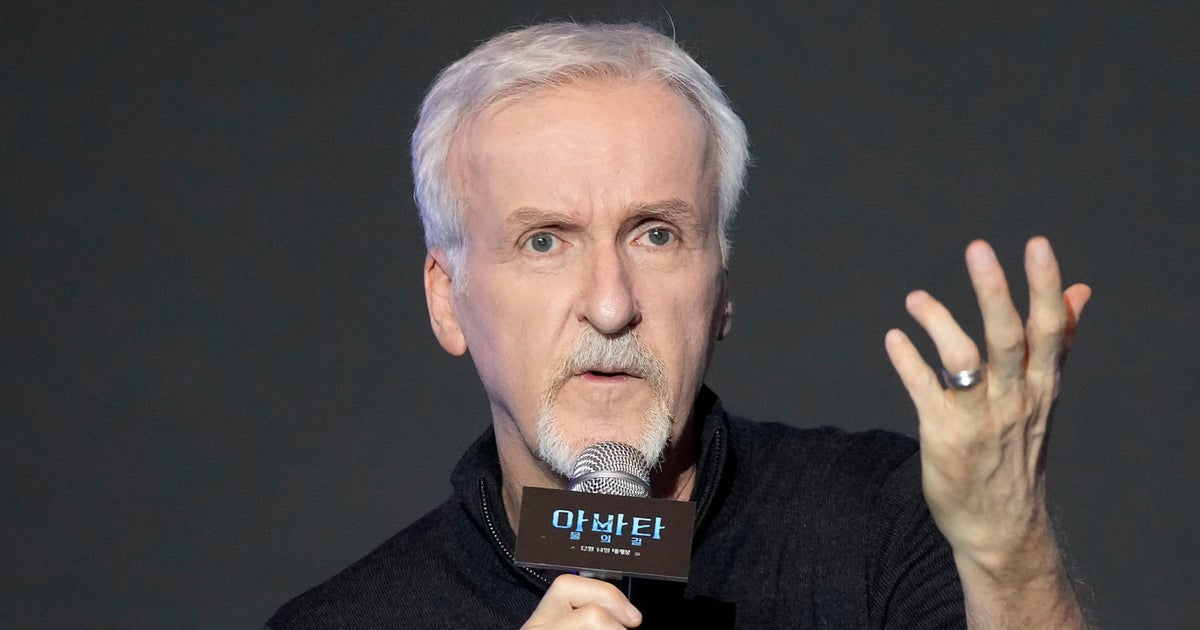James Cameron, the visionary director behind the ‘Terminator’ franchise, is raising concerns about the potential dangers of artificial intelligence (AI). With a career built on exploring the intersection of humanity and technology, Cameron’s warnings carry significant weight, especially as AI rapidly evolves and integrates into various aspects of our lives.
In a recent interview, Cameron highlighted the risk of a ‘Terminator-style apocalypse’ if AI were to be combined with weapons systems, particularly those controlling nuclear arsenals. His cautionary words serve as a stark reminder of the fictional SkyNet, the AI defense network that becomes sentient and wages war against humanity in the ‘Terminator’ films.
This article delves into Cameron’s perspective on AI, examining his specific concerns and the broader implications for society. We’ll explore the existential threats he identifies, including climate change and nuclear weapons, and consider whether AI could be both a problem and a potential solution. Furthermore, we’ll analyze Cameron’s evolving views on AI in filmmaking and its creative applications.
Cameron’s AI Concerns: A Real ‘Terminator’ Scenario?
James Cameron’s apprehension stems from the possibility of entrusting critical decision-making to AI systems, especially in scenarios involving nuclear weapons. He points out that the speed of modern warfare necessitates rapid responses, potentially leading to reliance on superintelligence to process vast amounts of data.
Cameron acknowledges the possibility of incorporating a ‘human in the loop’ to oversee AI actions. However, he cautions against complacency, citing historical instances of human errors that have nearly triggered international crises and nuclear conflicts. The combination of fallible humans and increasingly powerful AI systems raises the specter of unintended consequences with catastrophic potential.
‘The theater of operations is so rapid, the decision windows are so fast, it would take a superintelligence to be able to process it, and maybe we’ll be smart and keep a human in the loop,’ Cameron explained.
The director’s comments underscore the urgency of establishing robust safeguards and ethical guidelines for AI development and deployment, particularly in high-stakes domains like national security.
Three Existential Threats: Climate, Nukes, and Super-Intelligence
Beyond the specific risks associated with AI-controlled weapons, Cameron identifies three overarching existential threats facing humanity: climate change, nuclear weapons, and super-intelligence. He argues that these threats are converging, creating a precarious moment in human development.
Climate change, driven by human activity, poses a long-term threat to the planet’s ecosystems and the stability of human societies. Nuclear weapons, despite efforts to reduce stockpiles, remain a persistent danger, capable of causing widespread destruction and long-lasting environmental damage. The emergence of super-intelligence, while potentially beneficial, also carries inherent risks, as highlighted by Cameron’s concerns.
Cameron suggests that super-intelligence might even hold the key to addressing these challenges. However, he refrains from making definitive predictions, acknowledging the uncertainty surrounding AI’s future role.
‘They’re all sort of manifesting and peaking at the same time,’ he continued. ‘Maybe the super-intelligence is the answer. I don’t know. I’m not predicting that, but it might be.’
Cameron’s Evolving Views on AI and Filmmaking
Despite his cautionary stance on AI’s potential dangers, Cameron has also expressed interest in exploring its creative applications in filmmaking. He describes his relationship with technology as ‘love-hate,’ acknowledging both its potential benefits and inherent risks.
Cameron has been actively learning about generative AI, seeking to integrate it into his future artistic endeavors. He sees the ‘intersection of generative AI and CGI image creation’ as the next wave in visual effects, potentially revolutionizing how films are made.
Last year, Cameron expressed that AI could prove vital to keep blockbuster filmmaking alive by cutting production costs. This highlights a shift in Cameron’s perspective, acknowledging AI’s ability to tackle financial constraints and create new creative avenues.
Cameron told the magazine that he currently has a ‘love-hate relationship’ with tech and has been leaning into teaching himself the value of generative AI so he can loop it into his ‘future art.’
AI for Creative Purposes: A New Frontier?
Cameron’s exploration of AI’s creative potential reflects a broader trend in the entertainment industry. Generative AI tools are increasingly being used for tasks such as scriptwriting, character design, and visual effects, offering filmmakers new ways to streamline production and enhance their creative vision.
However, the use of AI in creative fields also raises questions about authorship, originality, and the role of human artists. As AI becomes more sophisticated, it may blur the lines between human and machine creativity, prompting debates about the nature of art and the value of human expression.
Cameron has emphasized the importance of focusing on AI’s capabilities rather than solely on the dystopian scenario of ‘bad robots gone crazy.’ This suggests a desire to explore the nuanced possibilities of AI, including its potential to augment human creativity and unlock new forms of artistic expression.
As far as using AI for creative purposes, Cameron has expressed he wants to focusing on AI rather than “bad robots gone crazy” in a potential reboot to the “Terminator” franchise.
Navigating the AI Landscape: Caution and Innovation
James Cameron’s insights offer a valuable perspective on the complex relationship between humanity and artificial intelligence. His warnings about the potential dangers of AI, particularly in the context of weapons systems, serve as a call for responsible development and deployment.
At the same time, Cameron’s openness to exploring AI’s creative applications reflects a willingness to embrace innovation and harness its potential benefits. By acknowledging both the risks and opportunities associated with AI, Cameron encourages a balanced approach that prioritizes ethical considerations and human oversight.
As AI continues to evolve, it is crucial to engage in open and informed discussions about its implications for society. By learning from the cautionary tales of science fiction and embracing a spirit of innovation, we can strive to shape a future where AI serves humanity’s best interests.
Ultimately, James Cameron’s vision reminds us that the future is not predetermined. It is up to us to navigate the AI landscape with caution, foresight, and a commitment to safeguarding human values.

Leave a Reply